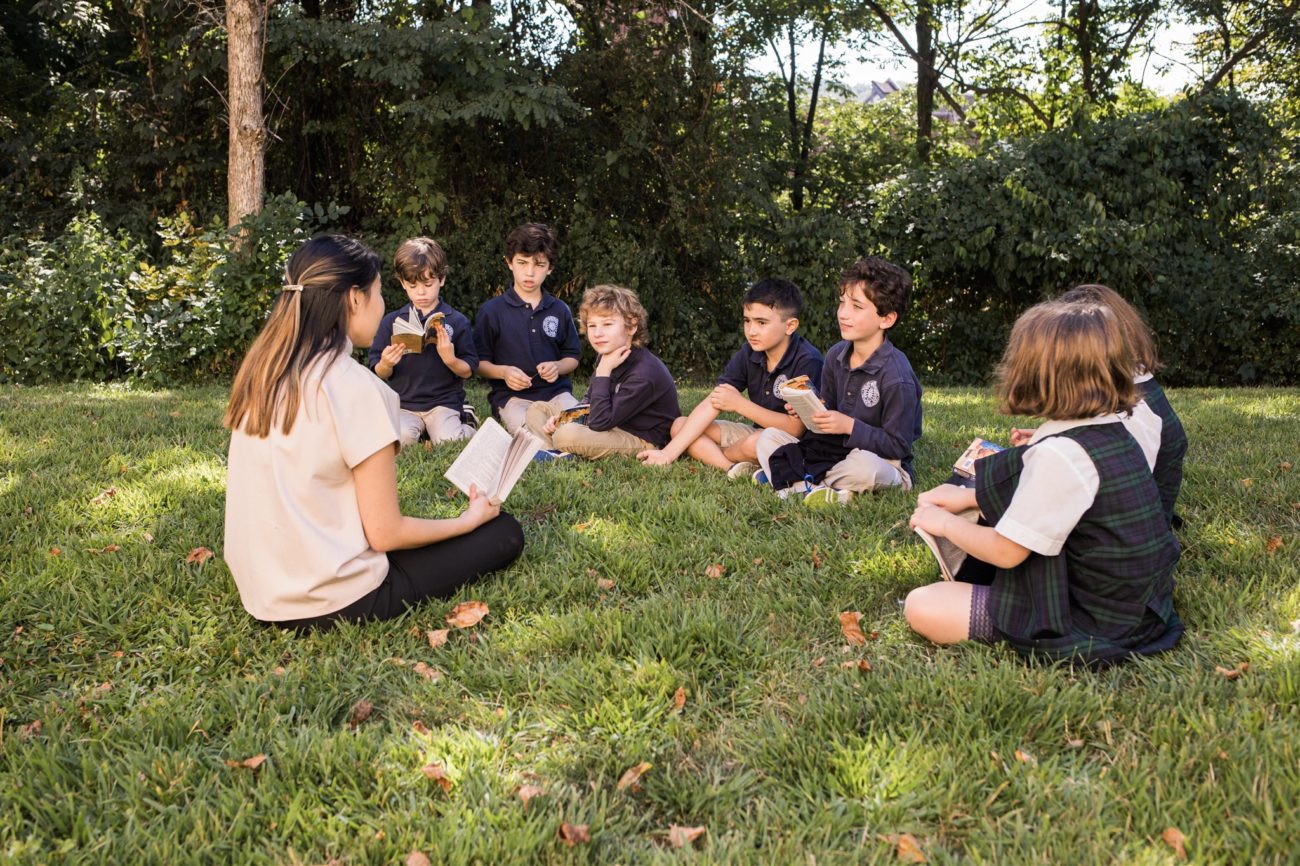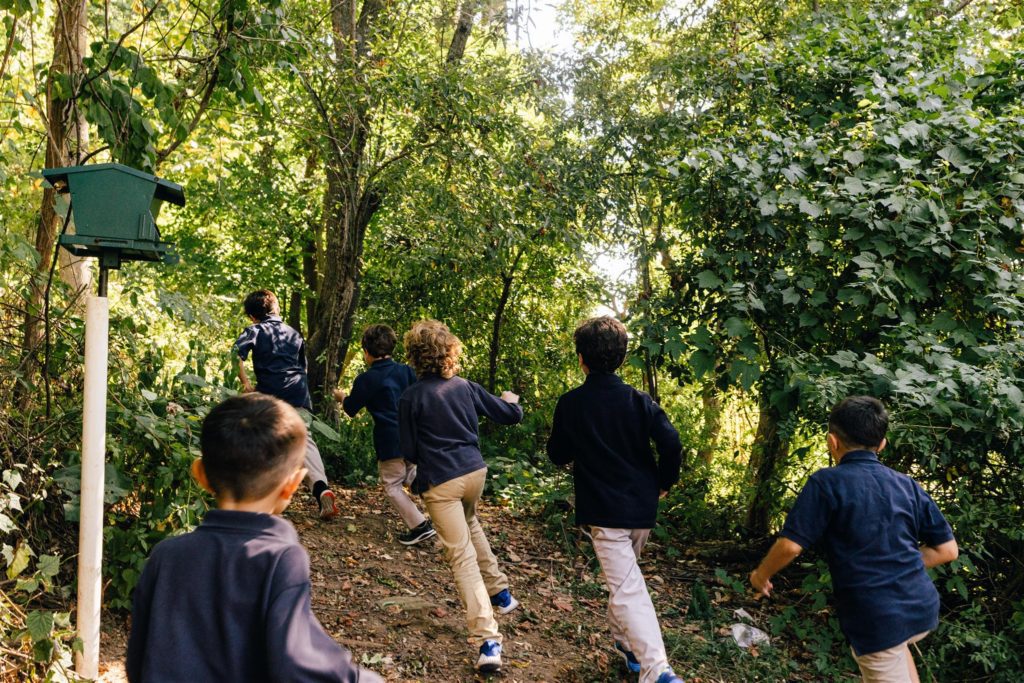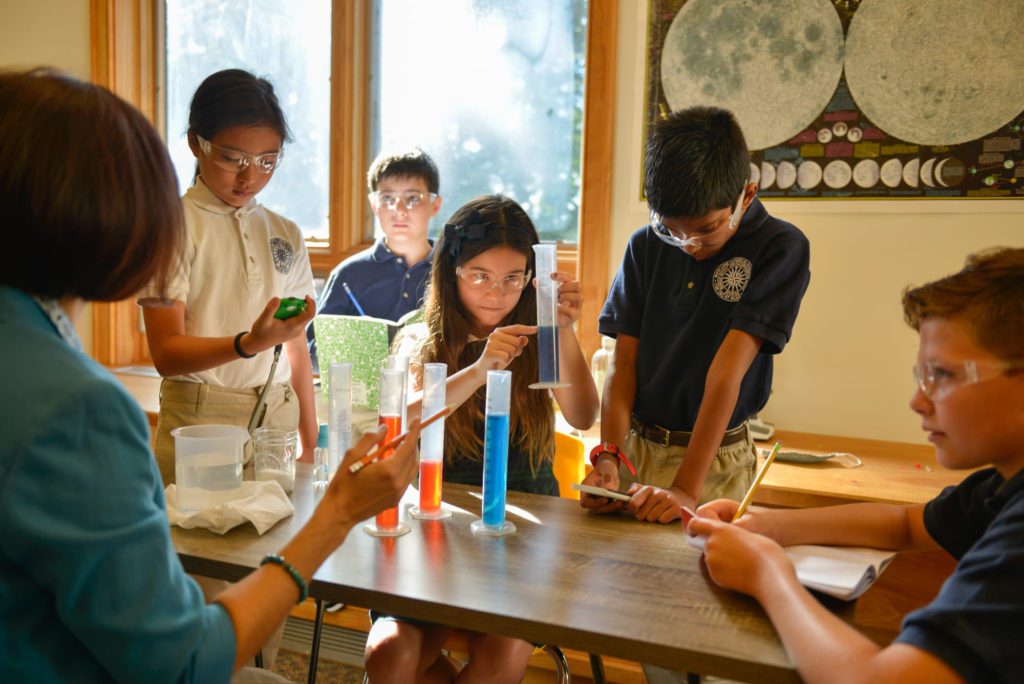Main Line Classical Academy: Never Too Young To Learn Great Things
MLCA's philosophy guides children on a journey that is both joyful and demanding, with the belief that what students learn matters and is not merely incidental to the acquisition of a set of skills.

With the belief that children are never too young to learn great things, Main Line Classical Academy has been shaping K-12 learners on the Main Line in the Classical tradition for over seven years, raising future Renaissance men and women building dynamic learners and multifaceted people along the way.
Main Line Classical Academy is located in Bryn Mawr and offers a liberal arts learning experience to students k – 12 through rich seminar-style instruction and hands-on investigation. MLCA believes that teachers should be content-area experts: from kindergarten through twelfth grade, students are taught by teachers and professors who are masters in their fields. Founder and Head of School Dr. Asya Sigelman prides herself on exemplary educators: “MLCA’s teachers are our greatest asset: we are a team of historians and philologists, mathematicians and musicians, scientists and painters — professionals who love imparting knowledge and zeal to young minds as we guide our students on an intellectual journey both rigorous and joyful.” With a student-to-teacher ratio of 1:6, class sizes are intentionally intimate to give attention to each learner and to craft a climate of discussion and accountability.

The Lower School at MLCA is k – 6, overseen by Mr. Frank Chilbert. The administration’s philosophy is that principals and school leaders do not simply reside in offices; instead, they have immersed themselves amongst learners– teaching classes, playing four square, guiding study groups, eating communally. Mr. Chilbert curates content experiences with his educators that are both rigorous and joyful. Students as young as kindergarten get exposure to great works of literature like Beowulf, The Epic of Gilgamesh, and Jason and the Golden Fleece. They memorize the great works of poetry by literary English pillars such as Tennyson, Blake, and Rossetti. These scholars also know how to get their hands dirty tapping maple trees and exploring and investigating their beautiful campus. Mr. Chilbert shares his educational philosophy: “The Lower School curriculum is designed to cultivate the child’s ability to attend to beautiful things. The depth of attention we wish for students does not come easily, however, and must be backed with perseverance and mastery of the great tools of learning achieved by a liberal education.” Another key element is developing artistically-round individuals. So much educational research indicates the transformative power of music on the mind and memory development; learners at MLCA can participate in piano or violin instruction in kindergarten to develop their musicality and gain an appreciation for music theory. The halls here reverberate with students embracing their instruments and celebrating sound.
MLCA begins French in Kindergarten and Latin in fourth grade, while children’s language receptiveness is strong. This allows students to compete in the National Latin exams as early as 5th grade or sitting for the French fluency exams (DELF) as early as seventh. Upper school learners engage in literature without translation, immersing themselves in text and studying the content with cultural significance.

At the Upper School, students are steeped in scholarship and study, as they arrive at AP courses as early as ninth grade and sit for not just core courses, but also thematic capstone intensives at the end of each year. Students have a core day of 8:40-1:30, and then space for electives, internships, college-level classes, or intense sports/arts commitments. Allowing students flexibility and autonomy in their day fosters maturity and self-exploration. Upper School Students are guided by Rabbi Sinensky, who feels strongly about the Upper School he has been intentionally building: “Entering our Upper School as deeply mature, highly motivated, and striking well-rounded budding scholars, our students participate in university-level college seminar-style courses. These courses are taught by our top-tier scholar-teachers, many of whom possess PhDs and have taught at the collegiate and graduate school levels. Through this immersive experience, our pupils transform themselves into academic leaders. They acquire the critical thinking skills and breadth of scholarship necessary to succeed in and make pivotal contributions to any professional and scholarly area they ultimately choose to pursue.” In addition to intense academic experiences, students are given proactive guidance through a multifaceted college planning program that begins as early as 8th grade to uncover value systems, learning preferences, career aspirations, and provide academic coaching throughout the trimesters.
To learn more about Main Line Classical Academy, the school invites preschoolers and kindergarteners to participate in Fall Fest Open House on October 2nd. Here, learners and families can experience large group instruction, small group fall-themed activities, a curriculum fair, and guided tours of their indoor and outdoor learning spaces. Additionally, families looking to see STEM students’ exemplars should come to their Math Fest on November 20th from 4 – 6 pm. Interested families can also attend a Virtual Info Session showcasing the school or schedule a private tour.
Join their Open House or Virtual Info Sessions.
Register by emailing admissions@mainlineclassical.org
-
- Fall Fest and Open House: October 2nd, 3 – 5 pm
- Math Fest, Sunday, November 20, 4 – 6 pm
Virtual Info Sessions 7 – 8 pm: October 19, November 16, December 7, January 4, 2022





